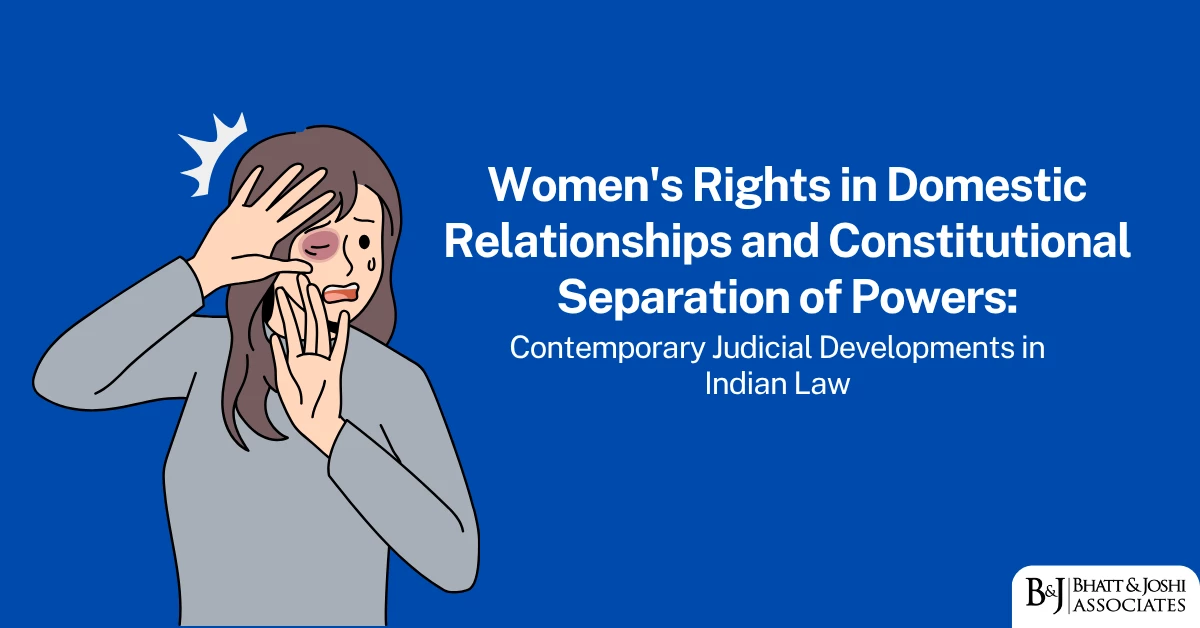Introduction
The Customs Act 1962 of India provides provisions regarding the levy and collection of customs duties, prevention of smuggling and regulation of foreign trade. The Act also provides for the establishment of the Central Board of Excise and Customs (CBEC) and other authorities for the administration of the Act. It lays down the procedure for collection of customs duties, rules for goods imported and exported, and penalties for violation of its provisions. The Act also contains provisions for the prevention of smuggling and other offenses relating to customs.

Confiscation means a lawful seizure of illegal import of prohibited goods into India for concealing exported goods or carrying smuggling of any goods. Confiscations are a way by which a Customs officer can exercise his statutory power as provided under Customs Act, 1962.
Section 111 of the Customs Act, 1962 has prescribed a list of goods that if brought from a place outside India, shall be liable to confiscation, and Section 113 prescribes the powers to the authorities for confiscation of improperly exported goods. A proceeding for confiscation is one in rem rather in personam.
Absolute Confiscation and Confiscation-in-rem
Section 125 of the Act empowers the adjudicating authority to release the goods to it’s rightful owner or to the person from whose possession the goods had been seized, on payment of a redemption fine in lieu of confiscation.
The High Court of Calcutta in Commissioner Of Customs vs Uma Shankar Verma has held that where the goods are not prohibited, the authorities have no choice but to allow the option of redemption of goods on payment of fine. On the other hand, when the goods are prohibited, allowing redemption on payment of fine is wholly within the discretion of the adjudicating authority.
Whereas, Absolute Confiscation leaves no scope for redemption of confiscated goods whereas, if goods are confiscated-in-rem, they can be redeemed through payment of the redemption fine and/or the penalty, and the applicable duty changers.
Parameters to be taken into consideration while deciding the quantum of fine leviable in lieu of absolute confiscation
| Sr. No | Criteria | Judgement |
|
1. |
Plea that he has to be given an opportunity to contest the valuation and imposition of redemption | Irshad Ali v. Commissioner of Customs, 2001 |
|
2. |
Redemption fine is imposed on goods which are imported in contravention of legal provisions, the profit which would have been earned by the importer is taken as the reasonable yardstick | Antifriction Bearings Corpn. Ltd v. Commissioner of Customs, 2000 |
| 3. | But High Court find substance in the plea of the counsel for the petitioner about the quantum of fine being on the higher side; reduced the fine amount from Rs. 50,000/- to Rs. 25,000/- | Mohd. Ayaz v Union of India, 2003 |
| 4. | The original authority has nowhere indicated in his order about the margin of profit on the imported goods which lead him to impose the quantum of fine as he did for the release of the goods in lieu of confiscation. | Commissioner of Customs, Amritsar v. Bajaj Sons, 2001 |
| 5. | It has to be borne in mind that in the case of penalty it is imposed directly on the person, while in the case of fine, it is on the goods. It follows that while mens rea may be relevant for purposes of penalty it is not required to be established in the case of fine. | Blue Dart Express Pvt. Ltd v Commissioner of Customs, Mumbai, 1999 |
Difference between Fine and Penalty
Action may be taken against goods is action in rem, but if ultimately the fine is paid or required to be paid by the owner of the goods, just as a penalty is paid or required to be paid by the person who has violated the law.
Difference between fine and penalty is so that in the case of fine, the punishment is imposed indirectly and in the case of penalty, the imposition is directly on the person. But in both the cases it is the non-observance of law by the person concerned which is required to be established in the first instance; and the observation of the Hon’ble Supreme Court in the case of Hindustan Steel Ltd. v. State of Orissa, regarding the principles underlying the imposition of penalty are required to be kept in mind and duly applied, mutatis mutandis, in cases of confiscation of goods and imposition of redemption fine as well.
Option to Pay Fine in Lieu of Confiscation
A restriction on import subject to certain conditions would operate as a prohibition if the conditions are not conformed to. There is thus all ready noted judicial authority that a prohibition will include restriction just as, in the sphere of fundamental rights, there is authority that a restriction will include prohibition as well.
The authorities should apply the provisions of Sec. 125 of the Customs Act, say a gun is imported for personal use the question of unscrupulous utilisation of the weapon does not arise. In the case of Hargovind Das K. Joshi v. Collector of Customs, the Supreme Court has held that under Sec. 125 of the Customs Act the authority can give an option to the importer to get the goods released on payment of fine. Under such circumstances both the authorities ought to have given option to the importer viz., the 2nd petitioner herein to get the goods released on payment of fine in lieu of confiscation.
It is pertinent to note that the end use should be taken into consideration when the option to pay fine in lieu of confiscation is granted under Sec. 125 of the Customs Act, 1962. The authorities under the Act may give to the owner of goods an option to pay in lieu of confiscation as ‘redemption fine’, as the officer thinks fit. It is at the stage of the fixing of the quantum of fine that the consideration of leniency and the end use should be taken into consideration.
Option to pay fine in lieu of confiscation is discretionary
Under Section 125 of the Customs Act, which relates to payment of fine in lieu of confiscation, the option to pay fine is discretionary in cases relating to exportations of goods prohibited under the Customs Act or any other law. In the present case, the Captain was smuggling the currency abroad at the instance of somebody else. The currency did not belong to him and he had no legitimate claim to it. Refusal to exercise discretionary power in such a case is entirely in conformity with the provision of the section. Tribunal found no reason to sustain the confiscation of the appellant’s car. The confiscation has been ordered on the ground that the appellant travelled to the Airport driving the car. This can hardly be considered as using the car during the attempt to smuggle the currency out of the country.
If Duty Was Paid Under Baggage Receipts
Goods under seizure if covered by valid baggage receipt for their clearance Goods not liable to suffer any further duty. If the goods under seizure are covered by valid baggage receipts for their clearance under baggage, it is a common case that the goods are not liable to duty once over.
It is for the appellant to prove and establish the genuineness of the baggage receipts produced by them before the authorities immediately after the seizure of the goods in question. Though the appellants have paid the duty levied by the authorities in pursuance of the impugned order now appealed against, in as much as the appellants have not been heard with reference to the genuineness or acceptability of the baggage receipts relied upon by them, interest of justice requires that the appellants be afforded an opportunity of being heard to prove their plea.
Redemption Fine and Market Price
For the purpose of determining the quantum of redemption fine market price is necessary. Proviso to sub-section (1) of Sec. 125 of the Customs Act, states that “provided” that without prejudice to the provisions of the proviso to sub-section (2) of Sec. 115, such fine shall not exceed the market price of the goods confiscated, less in the case of imported goods the duty chargeable thereon.
Therefore, for the purpose of determining the quantum of redemption fine, the market price is necessary. Neither side could indicate what the market price during relevant period was. Requirement of determination of market price is sine qua non for determining the redemption fine under Sec. 125. In absence of the same, the fine as imposed cannot be upheld. As the Collector also, has not indicated why a fine of 100% and 50% penalty was adequate, once he accepted that the gift is a bona fide gift, the imposition of 100% fine is found to be not justified.
It is also laid down in Section 125 of the fine shall not exceed market price of the goods less duty chargeable in respect of such goods. The fine is to be paid apart from the duty and charges payable on such goods. Section 126 of the Customs, 1962 such goods shall thereupon vest in Central Government.
“The main contention is that redemption levied for re-export in this case is without jurisdiction as Section 125 of the Customs Act, 1962 does not empower such a levy. The relevant portion of Section 125 reads:- “Whenever confiscation of any goods is authorised by this Act, the officer adjudicating it may, in the case of any goods the importation or exportation whereof, is prohibited under this Act and shall, in the case of any other goods give the owner of the goods, or where such owner is not known the person from whose possession or custody such goods have been seized, an option to pay in lieu of confiscation such fine as the said officer thinks fit.
Ongoing Appeal for Concerned Goods
Where in a case imported goods have not been confiscated by the Department and on the other hand, an option is given to the petitioner to redeem the goods for home consumption of payment of redemption fine of Rs. 2,00,000 and also on payment of duty at the appropriate rate. Therefore, the only question to be considered at this stage is whether the interest of the Revenue will be affected by directing the release of the goods before disposal of the appeal to be filed by the petitioners. Considering the facts and circumstances of the present case, the ends of justice would be met by directing the release of the goods on certain conditions.
Distinction between “Prohibited” and “Restricted” Goods
Distinction between “prohibited” appear in Cl. (d) of Sec. 111 of the Act and the term “prohibited” occurring in sub-section (2) of Sec. 125 of the Act. Import of a number of items may be ordered to be confiscated under Cl. (d) of Sec. 111 of the Act for the reason that they were prohibited to be imported by a person who imported them. Thus if the gold in question have been imported in quantities of less than five kilograms by persons entitled to import as provided in notification, it would not be prohibited. The confiscation of gold under Cl. (d) of Sec. 111 of the Act had occurred because the import of the gold the person concerned was held to be prohibited. The prohibition referred to in sub- section (2) of Sec. 125 is an absolute prohibition.
That is to say, it relates to goods which cannot be imported by any one. This would be of goods such as arms, ammunition, addictive substances such as drugs. The intention behind sub-section (2) of Sec. 125 is clear that import of such goods under any circumstances would cause danger to the health, welfare on morals of people as a whole. This would not be the case with regard to the goods import of which is permitted subject to certain conditions or to a certain category of persons, and which are ordered to be confiscated for the reason that the condition has not been complied with. In such a situation, since the goods could be imported on fulfilment of these conditions, release of such goods confiscated for the reason that the condition has not been fulfilled would not cause any danger or detriment to the general population as a whole.
Conclusion
It is of utmost importance to note that only owner or person from whom goods were seized can be called upon to pay redemption fine, Order demands duty from the Essar by invoking the provisions of Section 125(2) of the Customs Act, which is clearly inapplicable to the said applicant as under the said section it is only the owner or the person from whose possession the goods have been seized, who can be called upon to pay duty in addition to the fine imposed in lieu of confiscation of the goods. According to the impugned order, the person from whose possession the goods are seized, as referred to under Section 125, is Noble Ltd., and not Essar, which is why the option to redeem the goods on payment of fine has been given only to Noble. The demand for duty is therefore clearly misdirected.
Written by Parthvi Patel, student at United World School of Law











